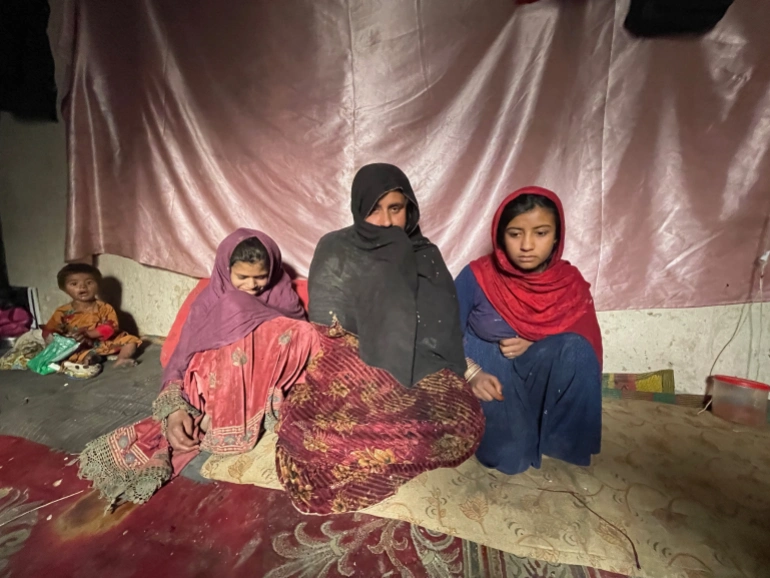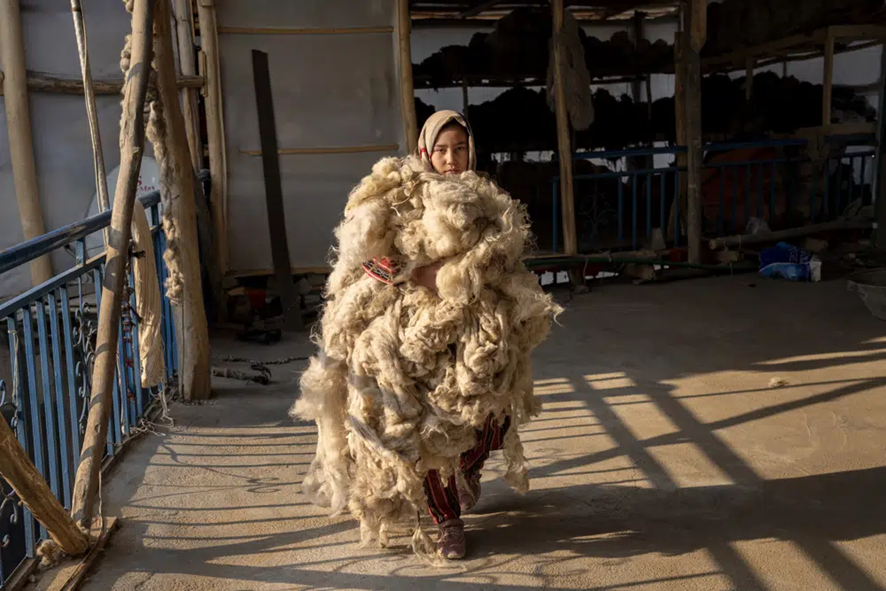On this March 8, International Women’s Day, Afghans suffered the hypocrisy of the United Nations (UN), which believed the Taliban regime would not violate women’s rights and failed to recommend sanctions against the new emirate.
The UN mission in Afghanistan concluded an investigation this week, calling it the world’s most repressive country against women and girls while criticizing the draconian restrictions of the Taliban, who have decided to condemn women to stay at home.
“Afghanistan under the Taliban remains the most repressive country in the world concerning women’s rights,” said Roza Otunbayeva, special representative of the UN Secretary-General and head of the mission in Afghanistan.

Afghanistan had left behind repressive laws against women during the years when a US-allied government was in charge of the country, allowing them to study, work, and even get involved in politics.
However, in August 2021, following Biden’s ordered withdrawal of US troops, the Taliban retook control of the country.
They gradually reinstated Islamic laws (according to their interpretation of Sharia) while promising UN delegates that they would be more flexible to avoid international sanctions; virtually all restrictions have been put in place.
“They have demonstrated an almost singular focus on imposing rules that leave most women and girls trapped in their homes,” the UN report added.
“It has been distressing to witness their methodical, deliberate, and systematic efforts to expel Afghan women and girls from the public sphere,” Roza Otunbayeva added, noting that “confining half of the country’s population to their homes in one of the world’s largest humanitarian and economic crises is a colossal act of national self-harm.”
This move “will condemn not only women and girls, but all Afghans, to poverty and aid dependency for generations to come,” he remarked. “It will further isolate Afghanistan from its citizens and the rest of the world.”

Alison Davidian, the UN special representative for women in Afghanistan, also remarked that the implications of the government’s policies “affect all Afghans and will resonate across generations.”
“We will never stop fighting for the rights of women and girls in Afghanistan,” UN Secretary-General Antonio Guterres said Tuesday, also denouncing that they have been forced out of schools, universities, offices, government buildings, and other activities outside the home.
The comments published before March 8, International Women’s Day, came a few days after universities resumed activities after the winter break, but without their female students.
Serious fears for women’s rights were confirmed after the Taliban regained power in Afghanistan.
Despite claims that they would protect women’s rights, the Taliban banned women from attending university in December and banned them from working for national and international non-governmental organizations.
The Taliban also ordered them to cover themselves from head to toe, and they cannot work or even appear in most public spaces, including parks, gyms, and swimming pools.
Despite international condemnation, the Taliban have shown no signs of backing down, claiming that these are “temporary suspensions” allegedly because women were not wearing the hijab correctly and gender segregation rules were not followed.
As for the ban on university education, the Taliban government has said that some subjects taught were not in line with Afghan and Islamic values.
Until they can review them, “no women can attend class.”
These are nothing more than excuses to be able to re-impose their interpretation of Sharia without sanctions from the West, as promised by Joe Biden, French President Emmanuel Macron, and European Council President Ursula Von der Leyen in the past, albeit with no news so far.
While access to lower-level education varies by region, most girls in sixth grade and above are barred from accessing education. In addition, women’s schools that have remained open have been targets of horrific attacks.
More than 50 students, mainly girls, were killed in a suicide bombing at a Kabul school in October, one of several deadly attacks in recent years. Large women’s groups demonstrated in several cities after the blast, reiterating their right to education and condemning the persecution they faced.
In addition, the UN Security Council will later meet with Otunbayeva and women representatives of Afghan civil society groups.
It is estimated that 11.6 million Afghan women and girls need humanitarian assistance.
Many male students have protested against restrictions on women’s education through class boycotts, while several teachers have resigned.

“If we want to be a civilized country, the doors of universities must be reopened to all our citizens without gender, religious, and geographical differences,” university professor Murtaza Hossieni told Tolo news.
Finally, women outside Afghanistan are raising their voices and urging Western governments to speed up the aid process.
At an International Women’s Day event in Berlin, Afghan women living in Germany and the Netherlands urged governments to step up their efforts to bring Afghans to Germany to rescue them from the Taliban.
“We feel betrayed by the Western states,” read a statement signed by the group of protesters.
With information from Derecha Diario

